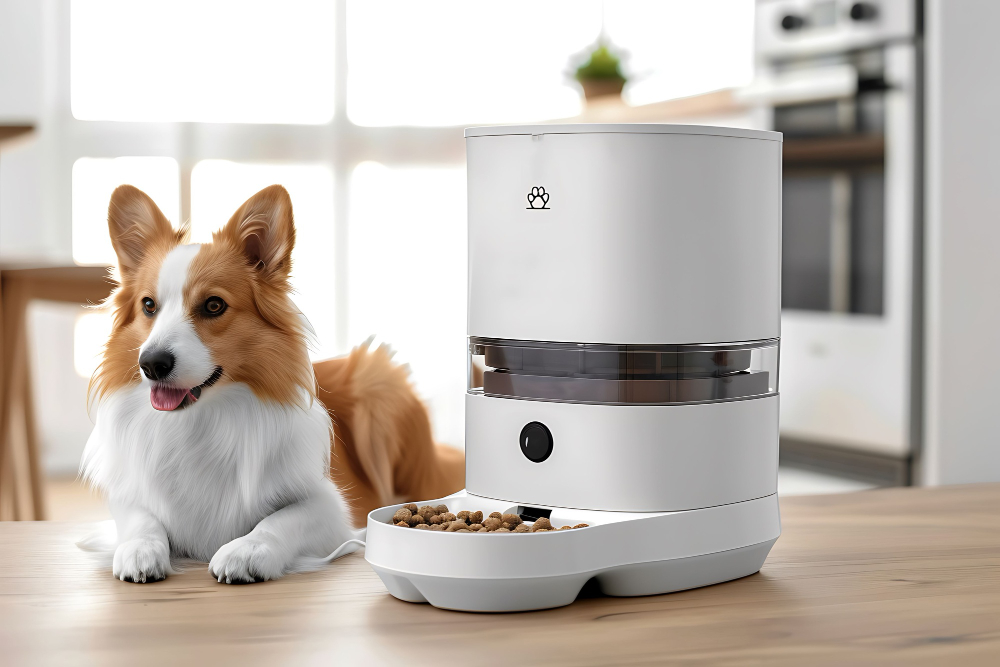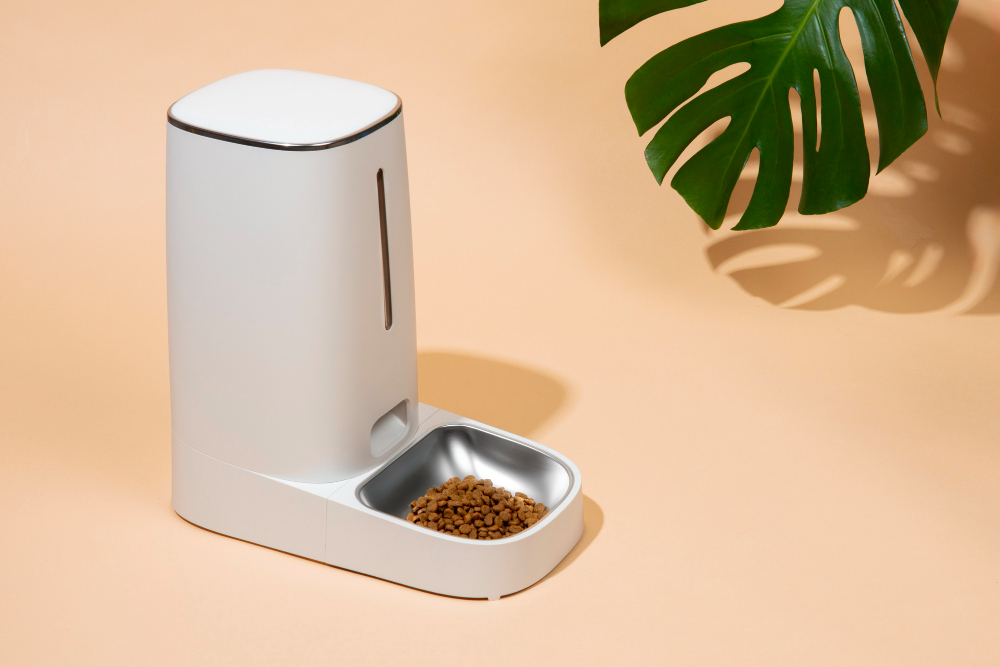How Smart Pet Trackers Are Transforming Animal Health in 2025

In 2025, smart pet trackers are no longer just about finding lost pets—they’ve evolved into powerful health and wellness devices that help owners understand their pets like never before. These intelligent gadgets combine GPS tracking, biometric monitoring, and AI-powered insights to give pet owners detailed data on their furry companions’ daily lives. From detecting early signs of illness to improving fitness routines, smart pet trackers are revolutionizing animal health and reshaping how we care for pets.
Table of Contents
The Evolution of Smart Pet Trackers
Just a few years ago, pet trackers were basic GPS devices that helped locate lost animals. Fast forward to 2025, and these devices have transformed into full-fledged health monitoring systems. The latest generation of smart pet trackers now includes features like heart rate tracking, sleep monitoring, calorie counting, and even temperature alerts.
Companies like FitBark, Whistle, and Tractive have led the charge by integrating health analytics with GPS systems, creating tools that help pet owners make proactive health decisions. According to PetMD, consistent health monitoring can help identify patterns that reveal early signs of diseases such as obesity, heart problems, or anxiety in pets.
Real-Time Health Monitoring: A Game Changer
One of the biggest transformations in animal health is the ability to monitor a pet’s well-being in real time. Modern smart pet trackers come equipped with sensors that measure vital signs and behavior patterns. For example, a sudden drop in activity levels might indicate fatigue or illness, while irregular sleep patterns can suggest anxiety or discomfort.
Owners can instantly receive alerts through mobile apps, allowing them to act quickly if their pet’s behavior changes unexpectedly. This real-time feedback bridges the communication gap between pets and humans, offering peace of mind and better health outcomes.
Early Disease Detection and Prevention
The future of pet healthcare lies in prevention, not just treatment. With AI-powered algorithms, smart pet trackers can now analyze months of data to detect subtle deviations in movement or heart rate—often before symptoms are visible.
Veterinarians increasingly use this data during consultations to understand the animal’s baseline health metrics. This approach allows early intervention for conditions like arthritis, diabetes, or heart disease, helping pets live longer and healthier lives.
The combination of wearable data and veterinary insights has given rise to what experts call predictive pet health, where owners can anticipate and prevent health issues before they become serious.
Fitness and Weight Management for Pets
Pet obesity remains a growing concern worldwide. According to the American Veterinary Medical Association (AVMA), over 50% of dogs and cats are overweight, leading to increased risk of heart disease and reduced lifespan.
Smart pet trackers help tackle this issue by offering personalized fitness goals based on the pet’s breed, weight, and age. Owners can set daily activity targets and monitor progress over time. Some advanced models even sync with pet food dispensers to balance calorie intake with activity levels.
With accurate data at their fingertips, owners can ensure their pets maintain optimal body weight, resulting in better health and energy levels.
Location Tracking and Safety
Although health monitoring is the star feature, GPS tracking remains a fundamental benefit of these devices. Losing a pet can be devastating, and smart trackers now use multiple location technologies—GPS, Wi-Fi, Bluetooth, and LTE—to ensure accuracy even in challenging environments.
Many devices also include geofencing, allowing owners to set safe zones. If a pet leaves the designated area, the owner receives an instant notification. This combination of health monitoring and safety tracking makes modern pet trackers indispensable tools for responsible pet ownership.
You can explore a variety of smart GPS trackers for pets directly on TrendingOut’s GPS Tracker Collection, where functionality meets affordability for modern pet parents.
Data-Driven Veterinary Collaboration
Veterinarians are embracing data from smart pet trackers to enhance diagnostics and ongoing care. By reviewing real-time metrics such as sleep cycles, heart rates, and activity patterns, vets can provide more accurate advice and personalized treatment plans.
This collaboration between pet owners and veterinarians creates a continuous loop of data-driven health management. It’s no longer necessary to rely solely on brief clinic visits—your pet’s tracker becomes a 24/7 assistant to your vet.
AI and Machine Learning: The Brains Behind Pet Health Insights
The integration of AI and machine learning has taken pet care to a new level. These technologies analyze enormous amounts of behavioral data to identify patterns unique to each animal. Over time, the system learns your pet’s normal habits, making it capable of detecting anomalies automatically.
For example, if a dog that typically walks 8,000 steps daily suddenly drops to 3,000, the tracker may flag this as potential lethargy. Owners receive notifications to take preventive action before the condition worsens.
AI doesn’t just monitor—it teaches pet owners to understand their animals’ needs better, creating stronger bonds and more informed care.
Sustainability and Design Improvements
The 2025 lineup of smart pet trackers emphasizes not only functionality but also eco-friendly design. Manufacturers are developing rechargeable devices with low energy consumption and sustainable materials.
Many devices are now waterproof, lightweight, and comfortable for pets of all sizes, addressing common complaints from earlier models. Combined with long-lasting batteries and user-friendly apps, these innovations make continuous health monitoring easy and reliable.
The Role of Smart Pet Trackers in Multi-Pet Homes
For households with multiple pets, tracking individual health and location can be challenging. New multi-pet systems allow owners to connect several collars to a single app, offering a unified dashboard for monitoring all animals simultaneously.
This technology is particularly useful for breeders, shelters, and multi-pet families who need efficient ways to ensure every animal’s safety and well-being. The data gathered can also support better behavioral insights across different breeds and species.
Final Thoughts
Smart pet trackers are more than just gadgets—they are transforming the landscape of animal health care in 2025. These devices empower pet owners with actionable insights, improve collaboration with veterinarians, and enhance safety and well-being for pets everywhere.
If you’re ready to embrace the future of pet wellness, explore our recommended range of Smart GPS Trackers for Pets at TrendingOut. They combine innovation, precision, and design to help you take the best care of your furry friends.
FAQs
1. Are smart pet trackers safe for all pets?
Yes, most smart pet trackers are designed with safety in mind and are suitable for both dogs and cats. Always check the manufacturer’s specifications for weight and size recommendations.
2. Do smart pet trackers require a subscription?
Some models use cellular connectivity for real-time tracking, which may require a monthly subscription. Others rely on Bluetooth or Wi-Fi and have no ongoing fees.
3. Can smart pet trackers help detect diseases?
Absolutely. Advanced trackers use biometric data and AI algorithms to detect early signs of health issues, enabling preventive care and faster veterinary intervention.


